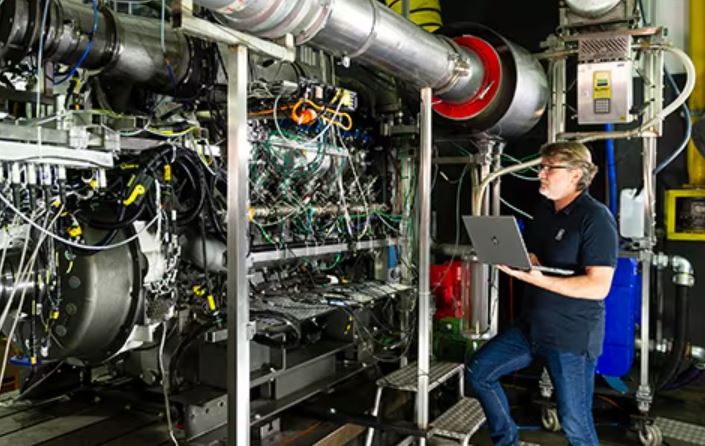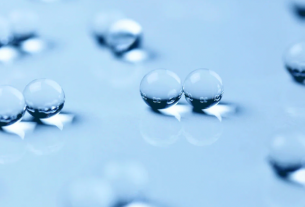Germany – Rolls-Royce has tested a 12-cylinder gas variant of the mtu Series 4000 L64 engine that is solely fueled by hydrogen.
The testing conducted by the Power Systems business unit produced highly encouraging outcomes in terms of efficiency, performance, emissions, and combustion. For the commercial release of hydrogen-based goods to meet customer demand for more ecologically friendly energy, these experiments mark yet another essential step.
As part of the development of a climate-neutral energy supply for a new container terminal, the first installation of mtu engines running on 100% hydrogen is already planned for the enerPort II lighthouse project in the German inland port of Duisburg.
During times of low demand and high renewable energy generation, such as when solar or wind energy production is high, the excess energy can be routed through an electrolyser to convert water to hydrogen, which can subsequently be used as fuel in a variety of applications.
Using just 100% hydrogen as fuel, the mtu gas engine has been bench tested for a number of months and has seen continuous improvements in terms of efficiency, performance, emissions, and combustion. Due to green hydrogen, future runs of these mtu engines may be CO2-neutral. For existing operating gas engines, Rolls-Royce offers a conversion option.
Due to the different combustion behavior of hydrogen compared to natural gas, the test engine’s fuel injection, turbocharging, piston design, and piston control were some of the engine components modified. However, the use of tried-and-true technologies from the Power Systems portfolio, such as mtu turbochargers, injection valves, and engine electronics and control, sped up the development of the hydrogen-powered engine.
CO2-neutral power supply
In order to prepare for the launch of a new terminal in 2024, one of the largest inland ports in the world, Duisport, is building a hydrogen-based supply network with the assistance of a number of partners. Future power requirements for the port will be largely met by locally produced hydrogen that emits no CO2. Three mtu fuel cell systems, two combined heat and power plants with mtu Series 4000 hydrogen engines, and a total installed capacity of 2MW will be used to achieve this (with a total installed capacity 1.5MW).
As part of its sustainability initiative, Rolls-Royce is realigning the Power Systems product line to take advantage of new technologies that can reduce greenhouse gas emissions even more.




